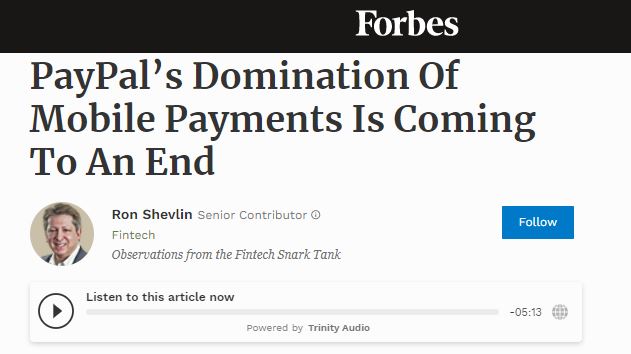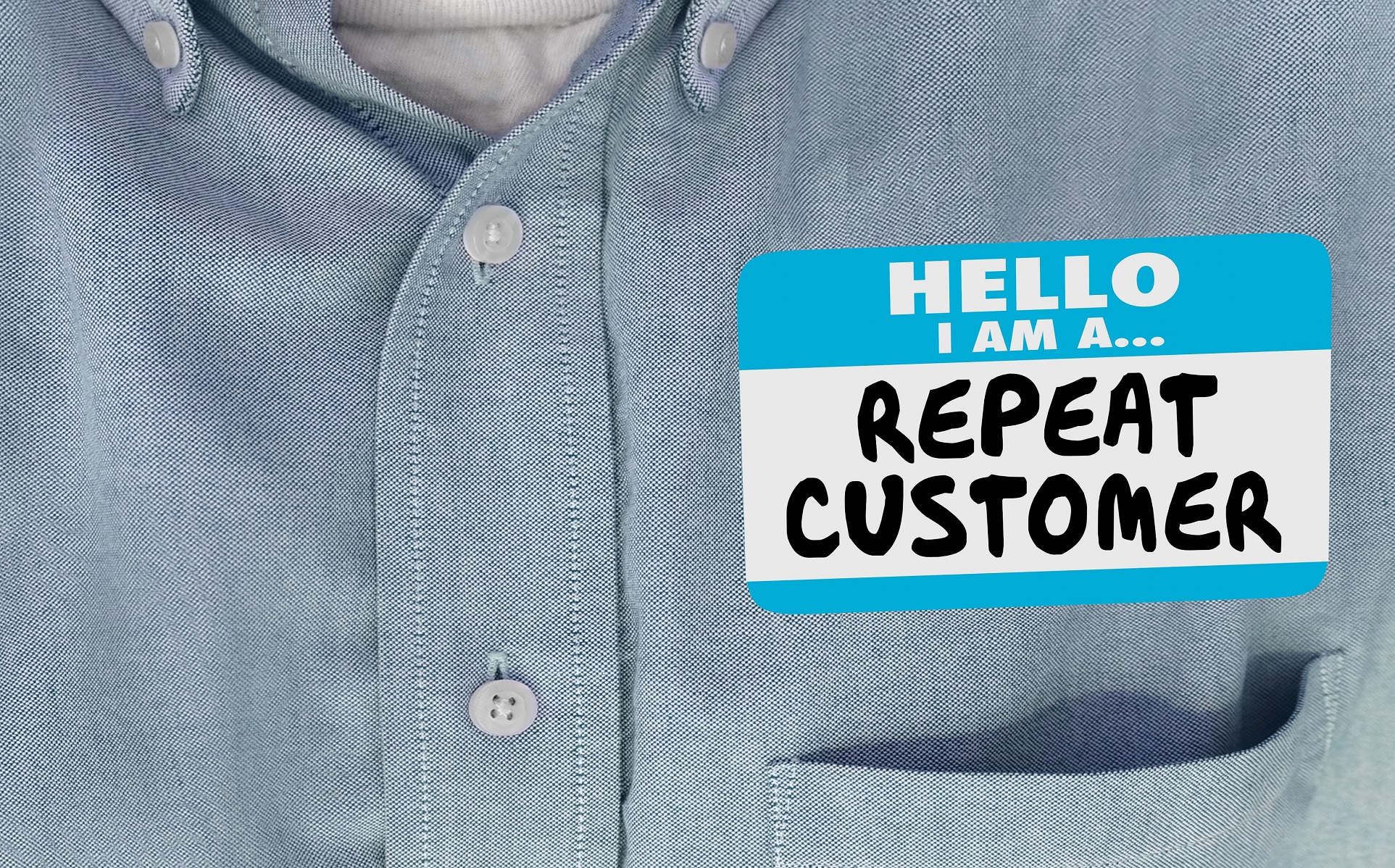How BNPL is Taking on PayPal
A FinTech guru at Forbes says companies with more merchant-focused BNPL models are chipping away at PayPal’s market share—and calls out FuturePay by name

By Tim Harris, Chief Executive Officer, FuturePay
This past month, we had the good fortune to be included in a Forbes magazine article addressing the state of the online payments industry. It was aptly titled “PayPal’s Domination Of Mobile Payments Is Coming To An End” by contributing editor and Fintech expert Ron Shevlin.
“Although PayPal’s Bill Me Later service was one of the first (if not the first) digital buy now, pay later (BNPL) service available in the U.S.,” Shevlin writes, “newer entrants like Affirm, Klarna, AfterPay, and FuturePay have impinged on PayPal’s dominance in the space.” That’s a great commendation.
We are especially thrilled to find ourselves in this kind of company—even before our new flagship digital revolving credit solution, MyTab™, is officially launched. FuturePay’s reputation is highly regarded, primarily because we work hard to create a payment option that is unique and valuable in the crowded Fintech marketplace. We are already working with a network of legacy merchants. Our focus on digital revolving credit is resonating among merchants—and those who follow the industry—compared to the more commonly-found installment-based programs.
As a digital revolving credit company, FuturePay is dedicated to creating merchant value. It is establishing an ongoing vendor community that is built on more than just facilitating one-off purchases. Buy Now Pay Later is popular in-and-of-itself, since it gives customers a convenient way to pay over time. However, the digital revolving model goes far further in creating value, and much of its advantages extend to the merchant.

With revolving credit, a consumer’s account remains open indefinitely, as long as the user keeps current on monthly payments. This represents a whole new ball game when it comes to getting shoppers to re-use their credit through repeat purchases, subscription-based purchases, and/or through transactions with other merchants who are part of a shared community. This is vastly different than hooking the purchaser into a four- or five-part installment plan, which typically has inflexible monthly payments. Plus, installment accounts traditionally incur higher fees for merchants than FuturePay’s model, which functions outside the typical credit card infrastructure.
It’s a more viable and sustainable model, emphasizing long-term customer relationships, which helps e-commerce vendors build average lifetime value and ongoing customer loyalty.
BNPL: Imitation is the Greatest Form of Flattery
The Forbes article hints that PayPal is motioning to adopt some of the features of BNPL solutions. “PayPal is feeling the pressure,” Shevlin suggests. PayPal’s executives have talked about becoming a “super app,” or more of an ecosystem that consolidates other purchasing and financing tasks. This strategy, however, is dismissed in Shevlin’s piece as reactionary, and motivated by PayPal’s efforts to compensate in areas where competitors like FuturePay have gained ground. “A PayPal super app has little to do with meeting consumer needs or demands,” he says, “and everything to do with fending off the competition for both consumers’ and merchants’ relationships.”
We also love this prediction: An “unpublished projection” from Cornerstone Research estimates that BNPL-related retail purchases in the U.S. will increase from $24 billion in 2020 to nearly $100 billion in 2021. Shevlin literally refers to BNPL as an “exploding” avenue in the marketplace. That means the opportunity to build our merchant community through a BNPL offering is substantial. And because FuturePay’s model is based on revolving credit, the potential for merchants to accumulate profitable, long-term consumer relationships is also great.
However you look at it, we are honored that FuturePay has been identified as a prominent player—and a rising PayPal competitor. We’re confident this very educated forecast will pan out.